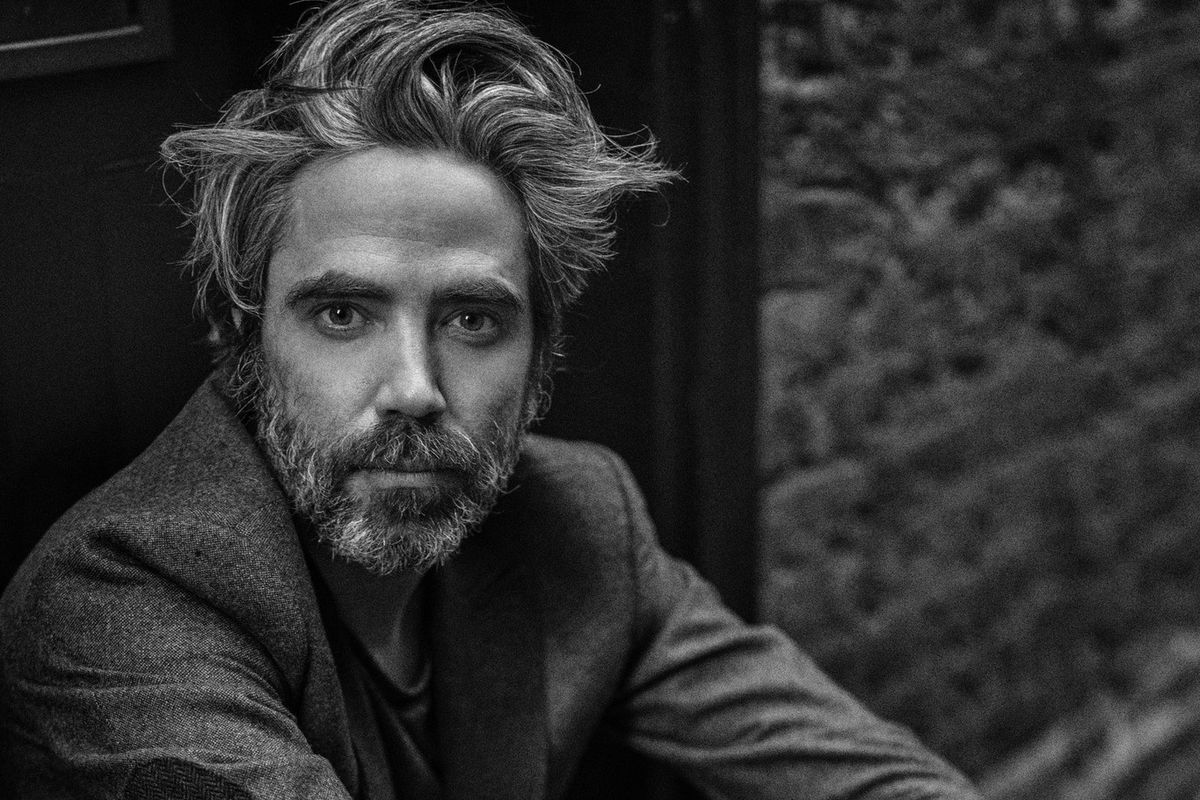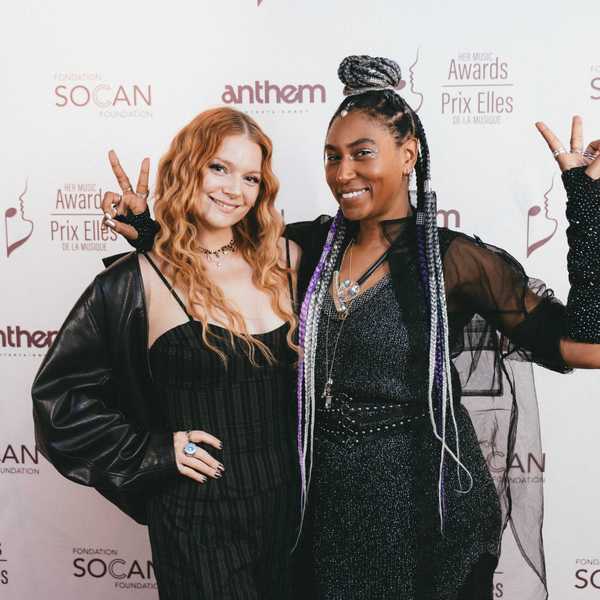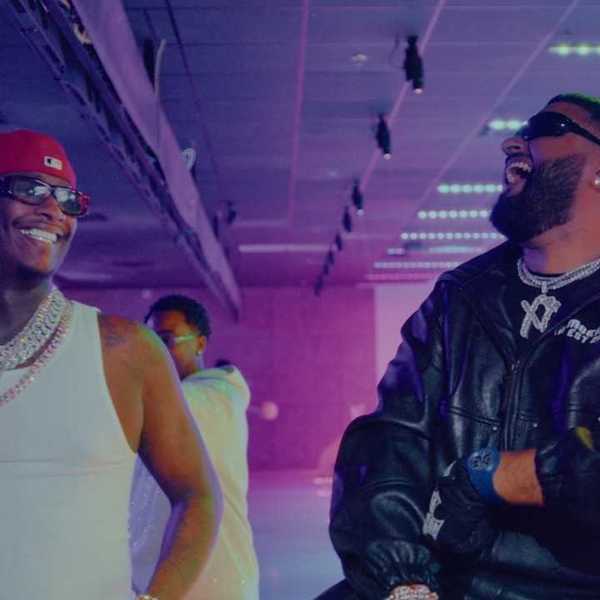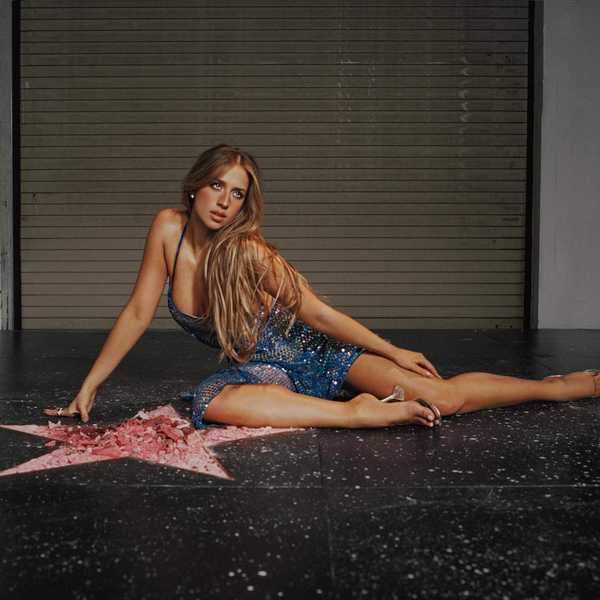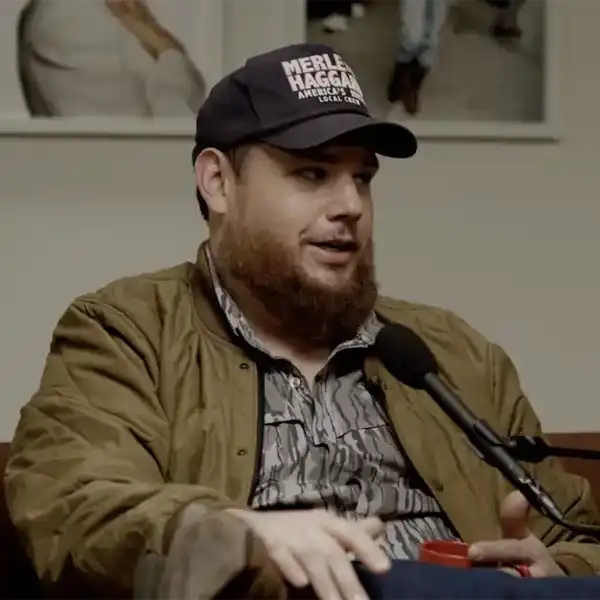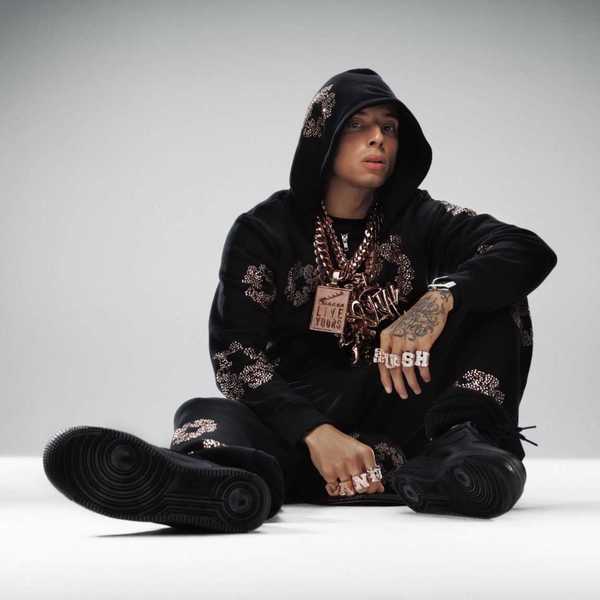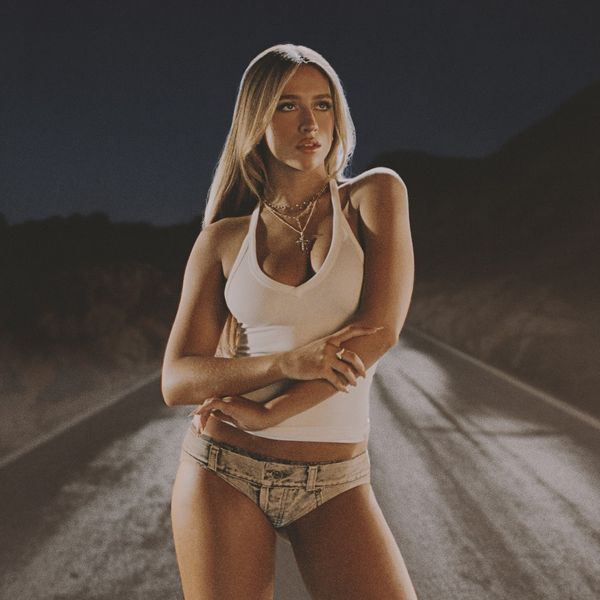Highlights from Billboard Canada's Fireside Chat with deadmau5 at Canadian Music Week 2024
Celebrating his induction into Canadian Music Week's Music Industry Hall of Fame, the legendary electronic music producer talked to editor Richard Trapunski about his first recordings, the importance of owning his catalogue, and what keeps him passionate 25 years into his career.
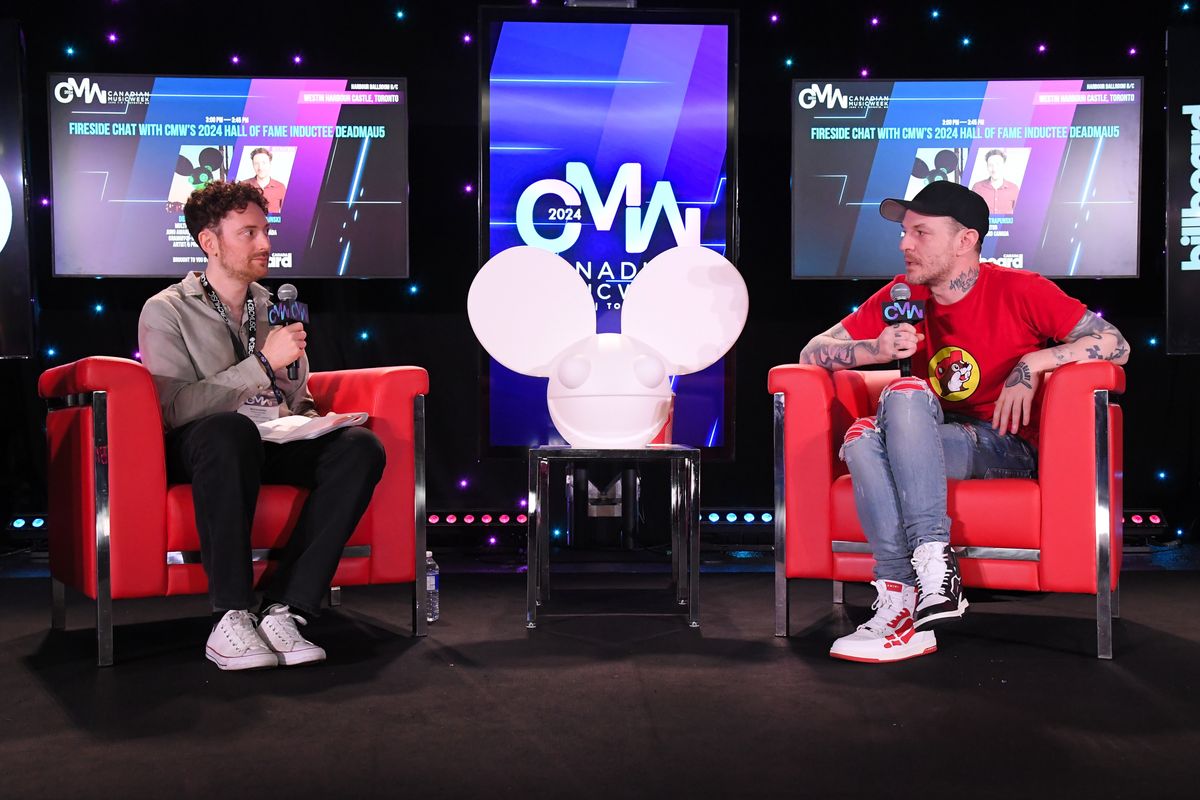
Billboard Canada editor Richard Trapunski (left) interviewing Joel Zimmerman a.k.a. deadmau5 at Canadian Music Week 2024
On Tuesday, June 4 at the Live Music Industry Awards in Toronto, held as part of Canadian Music Week 2024, electronic dance music superstar deadmau5 was inducted into the Canadian Music Week (CMW)'s Music Industry Hall of Fame.
Earlier that day, he was the subject of a keynote Fireside Chat at the CMW Music Summit Conference, one hosted by Billboard. It featured Billboard Canada editor Richard Trapunski engaging deadmau5 in a conversation that dove deep into the now 25-year-long career that has taken the Niagara Falls native from humble beginnings to memorable performances on some of music’s biggest stages across the globe.
The artist born Joel Zimmerman’s credentials for induction into the CMW Hall of Fame are solid. As Trapunski noted in an earlier Billboard Canada feature, the three-time Juno award winner "arose at a time when electronic dance music was becoming one of the most popular genres in North America. He remains one of electronic music’s most bankable stars, and, as of 2023, his catalogue has clocked more than 1.5 billion streams.”
The event was introduced by Billboard's Chief Brand Officer Dana Droppo, who noted that "deadmau5 is an artist who is truly singular. His contributions to electronic and dance music are undeniable. He is a Billboard U.S., global and Canadian chart-topper who has 14 entries on the Canadian Hot 100. A seven-time Grammy winner and the first Canadian artist to sell out The Rogers Centre in Toronto.
"He has consistently used new tools and technology to release, monetize and structure ownership of his music, paving the way for independent artists to follow suit. He is a label head and a proven collaborator."
The capacity audience was kept both entertained and informed by Zimmerman's typically candid and colourful comments. Here are some selected excerpts from deadmau5's talk.
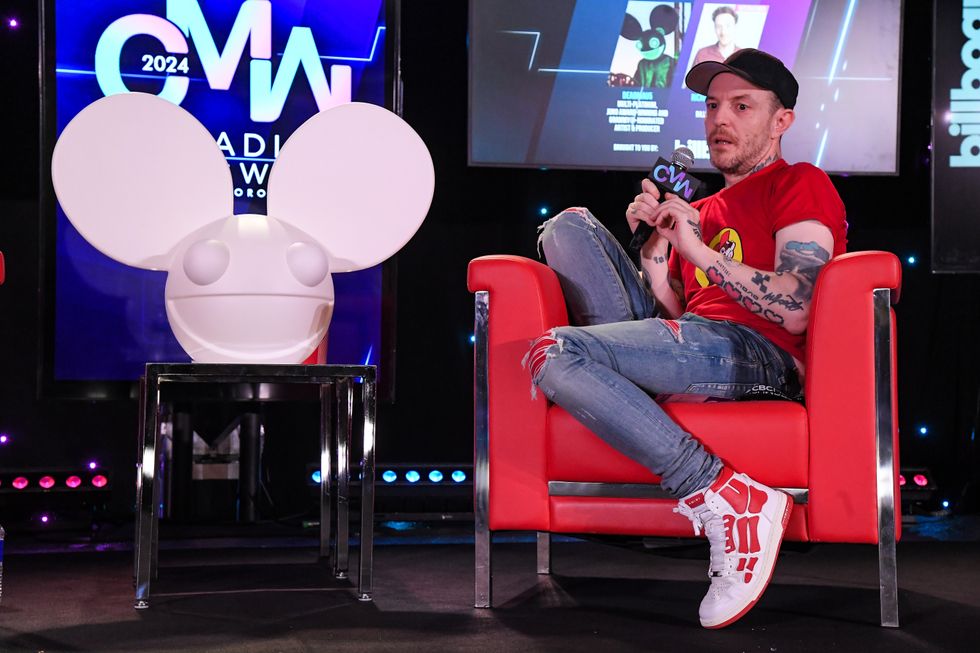
On the Music Industry Hall of Fame Award
“That is crazy. It feels a little not right, but I am so grateful. It is my first [Hall of Fame or lifetime achievement] award, which is cool yet scary. It’s like ‘well, good run dude.’"
On the 25th anniversary retro5pective shows and feelings of nostalgia
“Those feelings usually come only during show times, as that’s when my friends will come out. That’s how it all started. We’d all be hanging out, I’d go to their shows and they’d come to mine, so we were all together again after a 15-year period of all doing our own thing. There’d be a lot of hanging out after the show, exchanging things like ‘remember when?' I had some collaborators at these shows, including some great Canadian artists like Lights and Keisza [as well as Tommy Lee, Hayla and Sofi]."
On maintaining his Canadian roots
“To this day, I’m really planted here in Canada, and I really like staying here. It’s not like that’s my schtick and I have to commit. This feels like home. Some of my other peers just changed homes, but I can’t. It’s the coffee."
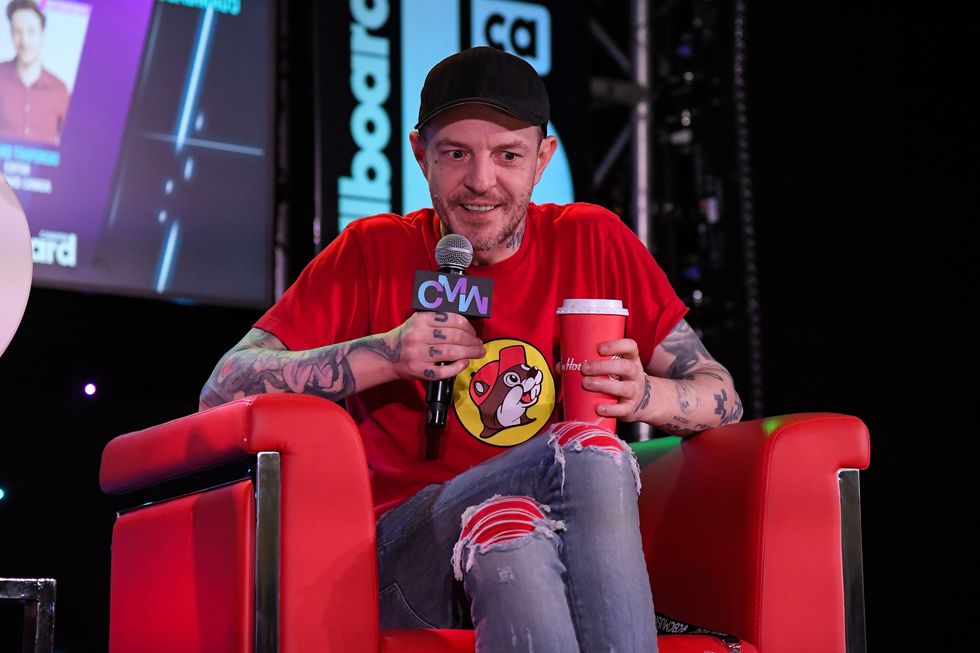
On the retrospective shows first being billed as 20th anniversary
“Someone dropped the ball on the billing. A friend of mine hit me up on that — ‘when did that track some out? Wasn’t that your first release?’ So I spent two hours counting back from 2024, which was hard, but we figured it out and it was 25. That debate has really shone on my Reddit. Do you count from the first upload, or the first commercial release, or the first thing anyone cared about? So many different points, so we just went to the first copyrighted publication.
It was the Smirnoff Experience [CD], with JT from Jet Promo. He licensed a piece of my music to a Smirnoff compilation, when that brand was starting to get into nightclubbing culture. Smirnoff and Diageo decided to do a whole campaign around it. They wanted to sell a mini-CD with their product. It was all Canadian artists, and it ended up in 40 stores. I had to find someone old enough to go in and buy some Smirnoff so I could get a copy of my own CD!"
On his early days
"I was screwing around really, with no intention of [putting anything out publicly]. I was just more enamoured by the technology of creating that stuff, rather than trying to break as an artist. It was more, ‘I’m just trying to get this f--ing midi sequencer to work with this Atari.’ Back then, the mid-'90s, we had Commodores and Ataris, but no computers, no internet, just midi basically, so you had to hack your way around it."
On his first work as deadmau5
"Where do we draw the line in the sand? It's like asking 'what did you eat for breakfast on July 5, 25 years ago?'"
On his work as Testpilot
"That is rather a different approach to doing things than my trying to find an identity. Before the whole deadmau5 thing, I think it was about identity-seeking as an 18 year old kid from Niagara Falls mooching rides to Toronto to break into some basement in Kensington Market for a rave. Those days are all gone. That was identity-seeking more than brand building. deadmau5 was more the brand building."
"As a DJ, you can kind of get away with murder. Just change your style, and it's a whole different thing. I just have these days where I’m not really into something and I’ll go 'well I guess it’s gonna be all techno tonight.' It’s a mood thing, a vibe thing."
On EDM culture
"I don’t really know anything about DJing. Jane Goodall looking at monkeys is like me to DJs and EDM. It's nice to be an outlier. Observe and emulate, to some degree. I don’t get too wrapped up in it. It’s a very young culture, 18-23, which is like half my age these days, which feels weird. I remember thinking in my 20s and 30s, no way am I rocking out to this at my age now. Unless you’re Derrick May or Carl Cox. I can’t see it. It's not that you fade into obscurity, but that’s the cue for the next crop and the one after."
On his current passions for technology and design
"Now I’m more interested in technology, software, programming, logistics, stage design and production. That is more where my heart is now than counting backwards from three and making sure everybody is having a great time. If your production is spot on, and sonically it is nice, the the rest will follow.
"I lean towards bridging the gap between what a producer is doing on a stage and making a cohesive statement to the festival or show-goer. What takes me all day in the studio for 15 minutes on stage, I want to make it cohesive enough for someone to make that connection and see what [I'm] trying to do. Then adding the modularity to it to be able to change it frequently. It’s a show. I like to mix it up to keep it moving and keep myself from falling asleep."
On playing the final night at popular Toronto club The Guvernment
"I only played there three times, but it was cool to close that place down. I still have a piece of its floor, in my living room, from when they were busting it up."
On mau5trap, his record label
"I started it with Dean Wilson who has been my manager through all of it. I wanted to own my music as much as I could and one way to manage that is through your own label. I was early in on that idea of starting a label. This was back in 2004-5, when everybody was always looking to go to a label. Everybody’s dream was to get on Ultra Records or something like that.
"I remember having a lot of work that wasn’t out or published and I had to think about the long term effects of signing something over. Whether it was a simple publishing deal, back in the day it was like ‘and we’ll take those masters too.’ I'm very adamant and I think the best advice I can give to anyone who is normal is this: Keep your masters. Always. Don’t ever sign anything away. And if you can keep your publishing too, that’s great.
"Sometimes you have to sign to a label to get that little start up, but they’re like the worst bank loans ever. But banks don’t loan to music risks. If they did, everyone would be going to the bank cuz it'd be way cheaper."
On A.I. and the importance of owning your catalogue
"I think in 5 years or maybe 10 or 20 years, AI is going to play a big role, especially in artist catalogue, and if you own those catalogues then good for you. Of course legislation is going to catch up with the whole thing, especially when it comes to creator rights. My lawyer is just screaming like a banshee to Congress to get a lot of these rights presented as bills.
"I feel an artists catalogue may be worth more in that sector of technology in the next 5-20 years as opposed to these catalog sales where they’re now buying it on multiples of 7-9 for a mid-tier catalog. But we're not counting in for future works derived from any kind of AI sync. That’ll be an interesting thing. It may totally shit the bed. It's just good to own your own shit.
On his 2018 classical music project, Where's the Drop?
"That was a fun one, and meaningful. I like music. To hear your music music’d is very cool. I worked with Gregory Reveret and the conductor to come up with some symphonic versions of some of my dance tracks. When Tidal approached me with the idea, I went, 'oh, will it just be a couple of string players playing a monophonic version of the hook and then have this big kick drum?' No, we have to write this as a symphony.'
"I worked on that with Gregory for 18 months. Then, to see it happen and be in the room as it was being recorded and be on stage while it was being performed, I was like ‘done. I’ll take the win.' That was truly once in a lifetime thing. It's playable by a full symphony, and is not just some ostinato carbon copy of what the original is."

